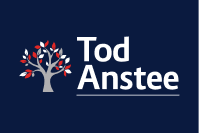The Spring Statement was a mixed bag, coming amid a tough time for living costs – although a very different picture from the same date two years ago, when the UK went into lockdown for the first time.
Headlines include VAT exemptions on energy-efficient property upgrades, a slight income tax drop (although not immediately) and changes to National Insurance thresholds.
Here we run through some of the announcements, how they impact the property sector – and the news that landlords need to know.
Support to Meet Higher EPC Rating Rules
Energy efficiency has become an even bigger focus over the last few months.
With huge increases in gas and electricity prices, things like great insulation, modern double-glazing and proper draught protection can all reduce costs for tenants and make a property cheaper to run.
The challenge for professional landlords is in balancing the cost of investing in green upgrades against the importance of energy efficiency when marketing a vacant property and attracting excellent quality tenants.
As a recap, changes to regulations mean that:
- All private rental residences must meet more stringent requirements by 2028.
- Properties must be rated at least in EPC Band C to comply.
- Any new rental opportunity must have a certification rating of C from 2025 onward.
One of the positive outcomes of the Spring Budget is the news that VAT will be zero-rated from April 2022 against a range of materials used in energy conservation projects.
Why is a VAT Cut on Energy Efficiency Materials Good News?
Landlords will already know that the existing rules make it mandatory to have at least an EPC rating of E for any private rental property – and must spend up to £3,500 making improvements if the rating is lower.
While exemptions are available for landlords who have made a sufficient financial investment, the issue still exists because tenants aren’t likely to apply for a home they know will be expensive and inefficient.
Along with the new certification standards, the spending cap also rises to £10,000.
Particularly for portfolio landlords or those with larger rental properties, there is the potential to be obligated to spend tens of thousands, coinciding with many other cost pressures.
VAT reductions apply to a range of materials (note that this doesn’t include labour or professional installation work) – such as:
- Green energy equipment, including solar panels, wind and water turbines.
- Low carbon heating systems, such as ground and air source heat pumps, wood-fuelled boilers and other heat and power units.
- Insulation and draught prevention.
- Thermostats and controls for central heating installations.
As an indication, if you fitted a high-performance air source heat pump, the change in VAT rate would make it about £350 cheaper. VAT relief will remain for five years, making it an optimal time to replace outdated boilers or insulation with a 5% cost reduction.
The Impact of Other Tax Cuts on Landlord Profitability
Another announcement relates to Income Tax, which, although not instantaneous, will mean a drop in the basic rate tax bracket from 20% to 19% – by the end of the 2024 Parliamentary period.
National Insurance thresholds for employees will rise from July 2022, matching the £12,570 level at which individuals are liable for Income Tax. These measures are anticipated to save taxpayers £5 billion and £6 billion, respectively, impacting 30 million people.
While these changes may not affect landlords directly (and not those managing property rentals through a limited company trading structure), any tax changes that help mitigate growing living costs should be seen as a good thing in terms of rental affordability and avoiding potential arrears.
However, National Insurance is still increasing by 1.25% in April 2022, being replaced by a new tax called the Health and Social Care Levy next year at the same rate.
Freezes to income tax bands may also act as a stealth tax, and mean that more households tip into higher tax brackets, so the outcomes aren’t yet fully known.
Our advice would be to ensure you work with a capable lettings team to ensure all tenancy applicants are fully screened, so you aren’t likely to experience arrears or other payment challenges in the months ahead.
Anticipated Second Home Stamp Duty Increases Scrapped
Sometimes, no news is good news, and that’s certainly the case with Stamp Duty!
Before Rishi Sunak’s broadcast, there were predictions that the second homes surcharge would rise from 3% to 4%. The Office for Budget Responsibility accidentally released a document including a sentence about a 4% increase.
Fortunately, with reports that Sunak reversed the policy change at the eleventh hour, there will be no Stamp Duty increase.
Currently, property investors in England pay a 3% surcharge above standard Stamp Duty rates, but the 4% rate is payable in Scotland and Wales.
The disappointment is that the government hasn’t responded to the call from the National Residential Landlords Association (NRLA) to do away with the second homes surcharge altogether – but perhaps the lack of an announcement was a compromise between the two.
Potential Changes to Landlord Taxation Structures
We didn’t hear anything about property income taxation, but we believe reform is in the works, attempting to simplify the system for landlords.
Last month, the Office for Tax Simplification (OTS) launched a survey requesting input from landlords and small businesses to explore the complexities of property income tax and ideas for reform. Topics covered include assessing how easy it is to report income and expenditure deductions and views on whether letting agents could underpin a new reporting process.
If you are interested in participating in the Call for Evidence, it remains open until June 2022, although we’ll wait and see whether this produces any changes in time for the autumn budget.
There are no further updates linking to the forthcoming rental reforms, but we expect a whitepaper to be published in the next few weeks.
In the meantime, if you have any questions about the Spring Statement or require advice about managing your rental properties, please give the Tod Anstee team a call at your convenience.







